Drinking more than four cups of coffee every day can increase your blood pressure. However, this side effect is often temporal and lasts a few hours. According to a series of studies, moderate consumption (no more than 3-4 cups a day) does not increase blood pressure.
Furthermore, it was found that a mild to moderate rise in blood pressure is more common in those who rarely drink coffee than in regular coffee drinkers. This is evidenced by a 2015 research that found an increase in systolic blood pressure only in people who do not consume frequently.
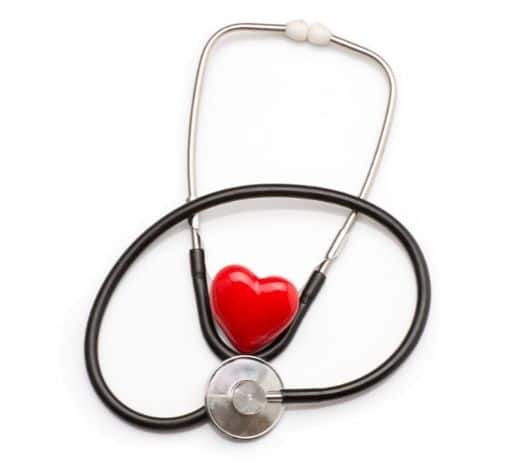
High blood pressure is a major risk factor for cardiovascular health. This condition can be managed from a nutritional point of view through some food choices. However, blood pressure and coffee consumption is a much-discussed topic. So, let’s try to clarify things for coffee lovers.
How does coffee affect blood pressure?
Caffeine – the main substance in coffee – can be a vasoconstrictor. This means that it can constrict or reduce the size of blood vessels and therefore increase blood pressure. More so, caffeine works by binding to various brain adenosine receptors.
Therefore, coffee is among the drinks said to be responsible for raising blood pressure since its main composition (caffeine) causes an increase in the synthesis of adrenaline.
Adrenaline is a neurotransmitter and hormone. It stimulates the part of the autonomic nervous system responsible for regulating blood pressure.
Whenever the concentration of this neurotransmitter is stimulated, the body becomes alert, increasing attention (and reactions) towards external stimuli.
These, in some cases, can cause an excessive increase in pressure. Furthermore, as earlier mentioned, caffeine triggers the vasoconstriction processes because it tends to restrict the vessel size, a phenomenon linked to hypertension.

This is why this drink is often not recommended for those suffering from high blood pressure.
How much does coffee raise your blood pressure?
A scientific publication on the PubMed reports an increase in blood pressure of approximately 8.14 mmHg – 5.75 mmHg (systolic and diastolic pressure, respectively). This increase is recorded in consumers who take 200 to 300 mg of caffeine, which is more or less around two cups of coffee. But again, this rise in blood pressure is usually only momentary; the effect only lasts for around three hours, according to the Healthline.

Meanwhile, people with high blood pressure need to pay more attention to excessive coffee consumption, even if they don’t need to give it up completely.
A 2017 survey that analyzed the impact of coffee consumption on blood pressure, cardiovascular disease, and diabetes mellitus found that drinking it in moderation is safe. This research also found that it’s beneficial in healthy people and in patients with high blood pressure, cardiovascular disease, heart failure, cardiac arrhythmias, or diabetes mellitus. Therefore, they conclude that the restriction of coffee is not justified for these patients, although some caution is needed.
Regarding the recommended quantities, the authors of an article published in the American College of Cardiology have shown that caffeine intake of up to 300 mg per day seems safe, especially for arrhythmias patients.
But individual differences in susceptibility to the effect of coffee on blood pressure and arrhythmias must still be considered.
Being cautious is important if you have been diagnosed with high blood pressure because drinking too much coffee may have health consequences. However, the consumption of this drink, between one and three cups a day, seems to be the right compromise for people suffering from hypertension. So, people suffering from high blood pressure can indulge in regular coffee consumption as long as it is in moderate quantities.
The long-term effects of coffee on the body
Although coffee may temporarily raise blood pressure shortly after consumption, the effect does not last beyond this point – that is, between one to three hours after intake. However, for those who take more than four cups every day, the long-term effects may include depression, stomach problems, chronic insomnia, and constant anxiety.
Meanwhile, coffee has several long-term benefits too. According to a study , those who drink 3-5 cups a day even reduce the risk of premature death and heart disease by 15 percent. So, it’s safe to say coffee helps protect the heart and the cardiovascular system.
Similarly, research published in the American Journal of Epidemiology has shown that with moderate consumption, the risk of mortality from cardiovascular diseases is reduced from 16 up to 21 percent with coffee consumption. But if the consumption is excessive, then the risk increases again.
However, you must also consider that some people metabolize caffeine more quickly than others. They, therefore, suffer more from effects such as tachycardia, hypertension, anxiety, agitation, and insomnia.
But how do you verify this? Suppose your blood pressure increases half an hour after consuming coffee. If that’s the case, this means that you metabolize coffee quicker, and therefore you need to be more careful.
Is coffee bad for high blood pressure? Should you avoid it?
Research has shown that coffee will raise your blood pressure for only a couple of hours if you go out of the safe limit, even for those with high blood pressure. Therefore, moderate consumption of coffee (1 – 3 cups a day) is safe for people suffering from hypertension. Otherwise, It wouldn’t worsen the condition, unless it’s already chronic.
In addition, several studies suggest that regular coffee drinkers do not develop hypertension. For moderate consumption, taking coffee seems to lower the risk of high blood pressure, and the side effects experienced from the consumption of coffee (if any) appear to be temporal.
So, how much coffee is bad?
You should not exceed 400 mg of caffeine per day (about 5.7 mg/kg of body weight per day). As for pregnant women, it is recommended not to exceed 200 mg per day.
Will quitting coffee lower blood pressure?
When you stop drinking coffee, the adrenaline lowers, and the blood vessels relax. Consequently, the blood flows more slowly, lowering blood pressure. Coffee is a drink with a stimulating, exciting, and energizing effect.
Given this premise, it goes without saying that when you stop drinking coffee, the first effects you experience are those relating to the improvement of mood, reduced anxiety and agitation.
You body will become much calmer, which will result in a better night’s rest since caffeine has been proven to disrupt sleep phases as it interferes with circadian melatonin rhythms. So, quitting will mean you will sleep better and wake up refreshed, and ready to face the day.
Does decaf coffee raise blood pressure?
Conversely, decaffeinated coffee may help slightly reduce blood pressure since it contains less caffeine, making it an excellent substitute that necessarily doesn’t taste too bad.
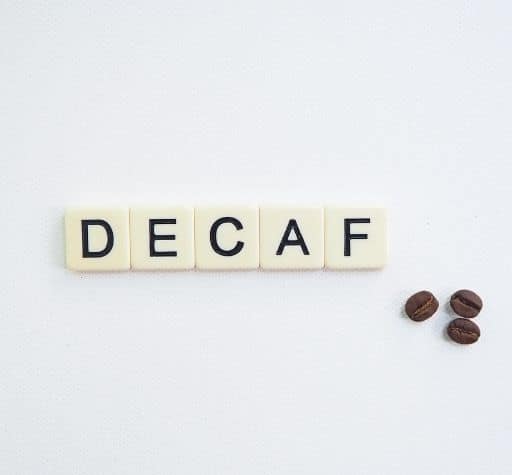
Instead of quitting regular coffee, consuming decaf can be a good compromise for those who are deciding on abstaining. Decaffeination consists of a chemical-physical process capable of eliminating the alkaloid from the beans, where it is concentrated in considerable quantities. Therefore, to lower blood pressure, you can switch to decaffeinated coffee.
Suppose 25-30 ml of espresso coffee contains a maximum of 110 mg of caffeine, a decaffeinated coffee contains about 8 mg. On the other hand, a 200 ml Americano coffee, prepared at the coffee shop or with a domestic machine, can contain up to 90 mg.
Keep this in mind when calculating the amount of caffeine consumed during the day to not overdo it.
When should you consider cutting your coffee intake?
You should consider cutting your coffee intake when:
- You have a hard time sleeping.
- You consume more than four cups a day.
- Your blood pressure is on the rise.
- You have arrhythmia (your heart beats irregularly).
- You discover you’re gaining a lot of weight.
- You’re suffering from anxiety and agitation.
If you suffer from high blood pressure, experts usually advise consulting with your doctor to determine whether to limit or stop drinking caffeinated drinks.
However, according to the U.S. Food & Drug Administration, 400mg of caffeine is generally safe for most adults. But, if you are concerned about the effect coffee may have on your blood pressure, you can try limiting the amount to 200 milligrams per day. Also, remember that the amount of caffeine used in coffee, soda, or energy drinks varies by brand and method of preparation.
Finding a coffee alternative
While moderate and conscious consumption of coffee is not a real problem for blood pressure management, it may be helpful to replace coffee with other drinks that do not contain caffeine.
The best alternative to classic coffee is decaffeinated coffee, since it only contains a tiny bit of caffeine. This drink is widely available on the market. It is an ideal option for those who love the typical aroma of coffee.
Drinks that do not contain caffeine include barley coffee and ginseng drink; they do not raise blood pressure. Like traditional coffee, chicory coffee is great option for the flavor and preparation method. The drink is caffeine-free and is readily available at retail outlets.
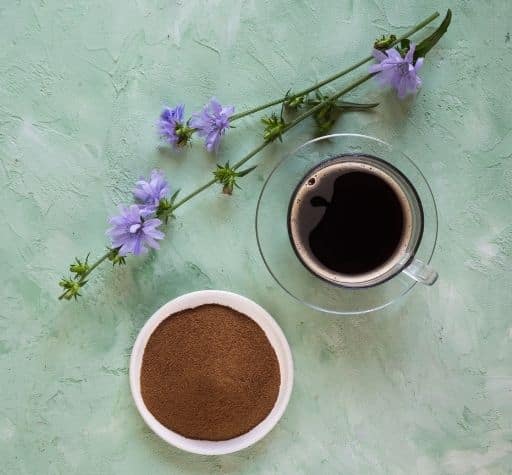
Little known, although interesting for its composition, Yannoh is a caffeine-free drink with an aroma that reminds you of coffee. Yannoh is commercially available in both soluble and mocha versions and is obtained by mixing various roasted food ingredients such as barley, wheat, brown rice, chickpeas, and rye.
In any case, it is advisable to evaluate, with the help of an attending physician, the potential interactions between these drinks (including classic coffee) and any other drug therapies.
Beware of caffeine: it is not only in coffee
Caffeine is not only in coffee. Tea, cocoa, cola, energy drinks, soda, and some foods also include it in varying proportions. In all, you should not consume more than 400 mg of caffeine per day.
Suppose you intake the maximum recommended dose of four cups of coffee a day, and consume drinks and foods containing caffeine. You could be exceeding the 400 mg daily limit. Be cautious.
As a guide, here are the doses of caffeine in various drinks and foods indicated by the European Food Safety Authority (EFSA):
- A can of Coca-Cola contains about 40mg.
- A 250ml energy drink contains 80mg.
- A 50 g dark chocolate bar contains 25mg.
- A milk chocolate bar contains 10mg.
- A 220ml cup of black tea contains 50mg.
Conclusion
Thanks to its intense aroma and rich combination of taste and energy, coffee is well appreciated, which is why it’s one of the most consumed drinks worldwide. However, the relationship between high blood pressure and coffee consumption has been the topic in numerous studies, arousing consumers’ interest.

In this article, we’ve answered the questions of those asking, can coffee increase blood pressure? Studies done so far on the topic seem to give the green light to moderate and regular consumption of coffee. However, those with hypertension should consume the right quantities (between one to three cups a day). But be careful when consuming coffee with other caffeine-containing products such as Coca-Cola and black tea. Their combination can bring your caffeine consumption past the 400mg daily limit.
FAQs
Does coffee lower blood pressure?
Although caffeine raises blood pressure after consumption, it has the reverse effect over time, much like jogging. While running, tension rises, but regular practice protects against cardiovascular damage. Like other infamous compounds, caffeine momentarily increases blood pressure, but this effect only lasts for some hours. However, decaf coffee can slightly reduce your blood pressure and is ideal for people with high blood pressure.
Can you drink decaf coffee with high blood pressure?
Decaf coffee has been proven to slightly reduce blood pressure. So, suppose you're diagnosed with high blood pressure and don't want to give up coffee totally. In that case, decaffeinated coffee may be the way to go. Decaffeinated coffee undergoes a special process to decrease its caffeine concentration, which is from the alkaloid of the plant. Its removal takes place when the plant's seeds are still green and fresh and have not been subjected to roasting.
How much does coffee raise blood pressure?
Coffee can raise blood pressure by 6 mmHg and as much as 8 mmHg in people who rarely consume it. However, in regular users, this effect appears to be significantly reduced. So, it is important to limit consumption to two cups of coffee per day and avoid drinking sugary sodas which often contain twice as much caffeine as a cup of coffee.













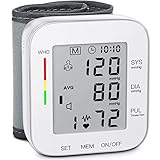

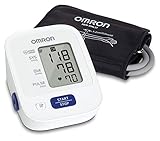





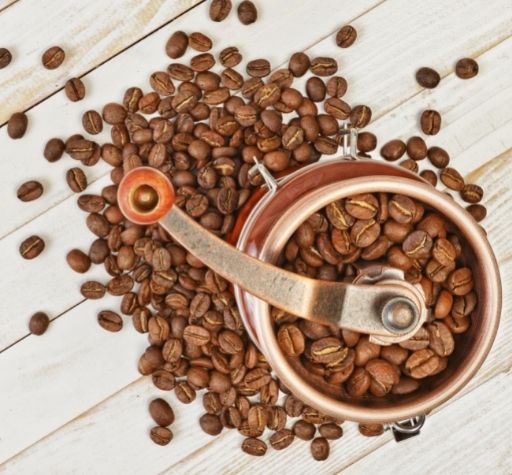




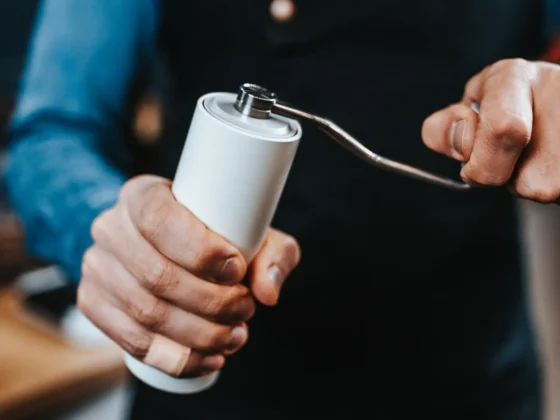
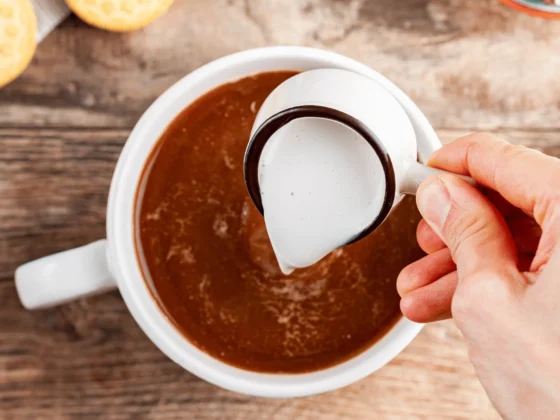


3 comments